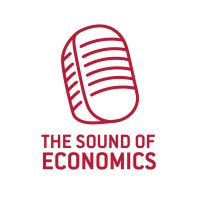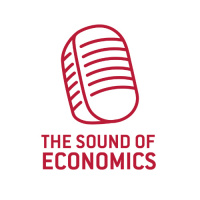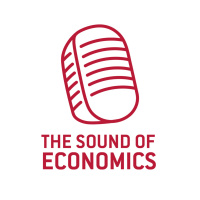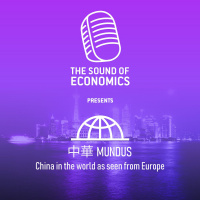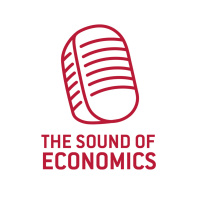Synopsis
Bruegel is the European think tank working in the field of international economics. Established in 2005, Bruegel is independent and non-doctrinal. It seeks to contribute to European and global economic policy-making through open, fact-based and policy-relevant research, analysis and debate.
Episodes
-
China’s influence in African media narratives and digital space
12/04/2023 Duration: 39minSince the end of the Chinese civil war in 1947, Africa has been crucial to China’s foreign policy. First, China supported several African liberation movements during the Cold War. Second, in November 2003, the Forum for China-Africa Cooperation (FOCAC) was created to improve cooperation between China and African states and third, Xi Jinping announced China's Belt and Road Initiative (BRI) in 2013, which aimed to reinvigorate the old silk trading route along the East African coast. Furthermore, a relatively unknown fact is that China has made significant investments in Africa's digital space. In this episode of The Sound of Economics, Giuseppe Porcaro is joined by Alicia García-Herrero and Iginio Gagliardone to talk about China’s image and digital influence in Africa. They discuss specific examples of successful and unsuccessful media narratives built by China and assess the role that Europe plays in relation to China and Africa's digital influence. Relevant publication: The Belt and Road Initiative tran
-
Why are remote jobs only happening in the cities?
05/04/2023 Duration: 34minSince the outbreak of the COVID-19 pandemic, a record number of people have begun to work from home. However, the seeming flexibility of remote positions is not without its limitations, since the spatial distribution of such roles is vastly uneven. In this episode of The Sound of Economics, Giuseppe Porcaro is joined by Fabian Stephany and Monica Stephens to explore how remote work contributes to continued urbanisation. They give special focus to the importance of digital infrastructure and the proximity of service providers, as well as the gendered dimensions of working from home and how this can affect people’s ability to work remotely. Relevant publication: The ‘anywhere’ jobs are not everywhere – they’re in cities, blog post by Fabian Stephany This podcast was produced within the project “Future of Work and Inclusive Growth in Europe“, with the financial support of the Mastercard Center for Inclusive Growth.
-
Quantitative tightening in the euro area
29/03/2023 Duration: 41minIn March 2023, the European Central Bank (ECB) launched its quantitative tightening (QT) policy, to unwind its portfolio of assets that resulted from its quantitative easing (QE) policy of the last decade. Despite the scarce evidence on the effects of QT, it was never attempted in the Euro area. Most lessons can only be drawn from the 2017-19 experience in the United States. In this episode of The Sound of Economics, Maria Demertzis invites Grégory Claeys and Megan Greene to discuss why the ECB has decided to go down the route of quantitative tightening and what it could mean for the future of the euro area. Relevant publication: Finding the right balance (sheet): quantitative tightening in the euro area, report by Grégory Claeys, requested by the ECON Committee, European Parliament
-
Assessing Europe’s strategy on critical raw materials
23/03/2023 Duration: 26minThe Critical Raw Materials Act, proposed by the European Commission on the 16 March 2023, sets clear benchmarks for domestic capacities along the strategic raw material supply chain and to diversify EU supply. In this episode of The Sound of Economics, Giuseppe Porcaro sits down with Bruegel researchers Marie Le Mouel and Niclas Poitiers to discuss critical raw materials and the role they play in the EU’s industrial policy, examining whether the proposed Act would help the bloc advance in its green and digital transformation.
-
The Belt and Road Initiative 2.0 is all about security
15/03/2023 Duration: 36minWhen the Belt and Road Initiative (BRI) was first announced in 2013, its official objective was to improve connectivity. However, many things have happened since then, from the US-China trade war to US containment of China’s technological rise, as well as China’s much more belligerent approach to the West. How is the BRI changing in this new reality? In this episode of The Sound of Economics, Giuseppe Porcaro is joined by Alessia Amighini and Alicia García-Herrero. They share the latest findings from their research, showing that the BRI has transformed itself from an economic to a much broader strategy with a political security-oriented focus. It serves as one of several devices uniting the Global South in a new and comprehensive narrative, one with a clear anti-Western tone. Beyond the BRI, this new narrative also features cooperation in the fields of digital governance, as well as academic and cultural exchanges. This episode is part of the ZhōngHuá Mundus series of The Sound of Economics. ZhōngHuá Mundus
-
The collapse of Silicon Valley Bank
13/03/2023 Duration: 29minWhat is happening with the Silicon Valley Bank? In this episode of The Sound of Economics, Giuseppe Porcaro invites Rebecca Christie and Nicolas Véron to unpack the ongoing SVB crisis and what it entails for global financial markets.
-
Why do patriarchal systems survive?
08/03/2023 Duration: 23minOn International Women’s Day 2023, Giuseppe Porcaro is joined by Nancy Folbre, one of the pioneering economists in the area of feminist economics. Together they discuss the findings published in Folbre’s latest book The rise and decline of patriarchal systems, where she examined the contradictory effects of capitalist development. She explains why the work of caring for others is under-valued and under-rewarded in today's global economy, calling attention to the organisation of childrearing, the care of other dependants and the inheritance of assets.
-
Europe’s gas outlook for 2023
01/03/2023 Duration: 36minEurope has survived the energy crisis in the past year; however, it is time to look forward and prepare for winter 2023-24. In this episode of The Sound of Economics, Jeromin Zettelmeyer invites Simone Tagliapietra and Ben McWilliams to present their latest paper, where they explore in detail the future of LNG imports, how much natural gas demand must be reduced to avoid crisis. They discuss the sectors which could take cuts in their energy consumption to aid in this preservation. McWilliams and Tagliapietra paint a sober picture of Europe’s gas supply-demand balance, stating that it will remain on a tightrope walk for the next two years. They also describe the strong and decisive actions that policymakers must continue to take to avoid emergency. Relevant publication: McWilliams, B., S. Tagliapietra, G. Zachmann and T. Deschuyteneer (2023) ‘Preparing for the next winter: Europe’s gas outlook for 2023’, Policy Contribution 01/2023, Bruegel
-
How useful have the EU’s financial sanctions on Russia been?
23/02/2023 Duration: 38minWhen the sanctions against Russia were first implemented, Giuseppe Porcaro invited Nicolas Véron and Elina Ribakova on The Sound of Economics to discuss the possible implications of those sanctions. On 24 February, it will be one year since the invasion of Ukraine. As this anniversary approaches, they revisit this topic to reflect on how effective the sanctions have been, its implication on the international financial and banking system and how Russia has responded to the sanctions. Check our special podcast series, War in Ukraine, which reflect on the implications of Russia's war in Ukraine in EU energy storage, macroeconomic implications, international finance system and more.
-
What China’s reopening will mean for the global economy
15/02/2023 Duration: 39minAs China moves closer to fully re-emerging from three years of government imposed Covid isolation and as they begin to reintegrate with the rest of the world, economic expectations are high. Beijing’s recent pivot from its stringent zero-Covid strategy — which had long choked businesses — is expected to inject vitality into the world’s second-largest economy next year. But what will this reopening mean for the Chinese economy? How will it affect Chinese society and China’s relations with the rest of the world in areas such as energy consumption and price pressures? In this episode of The Sound of Economics, Giuseppe Porcaro is joined by Bruegel’s Alicia García-Herrero and Steven Ying, the founding Managing Partner of High Impact Capital Advisor, to discuss the global implications of China’s reopening after their Covid isolation, China’s economic outlook in 2023 and the consequences this may have for Europe and the rest of the world. This episode is part of the ZhōngHuá Mundus series of The Sound of Economi
-
How should Europe react to the Inflation Reduction Act?
09/02/2023 Duration: 49minThe Inflation Reduction Act (IRA) of 2022 is a milestone in US climate policy. Unfortunately, it also contains protectionist elements, such as linking green subsidies to local content requirements (LCRs). This is prohibited under WTO rules. Legislating such LCRs is a first for the United States, and a blow to the multilateral trading system. In this episode of the Sound of Economics, Bruegel director Jeromin Zettelmeyer invites Kimberly Clausing and Sébastien Jean to discuss the policies laid out in the IRA and the impact it will have on the United States and other countries. They also discuss the global responses to the act and how EU policy makers in particular should react. Our new policy brief explains what is in the IRA, the impact on the EU and other economies, and how the EU should react.
-
Is deglobalisation already happening?
01/02/2023 Duration: 26minIn this episode of The Sound of Economics, Giuseppe Porcaro invites Uri Dadush to discuss whether deglobalisation is happening worldwide. They discuss the impacts of this on the global economy and what it may mean for internal relations. In his recent research, Uri detailed how, despite the current bleak rhetoric surrounding deglobalisation, most countries have seen increased international integration across nearly all goods, services and factor markets. He acknowledges, however, that geopolitics could prevail over economics in the future of globalisation. Relevant publication: Dadush, U. (2022) ‘Deglobalisation and protectionism’ Working Paper 18/2022, Bruegel
-
The Élysée Treaty: 60 years on
23/01/2023 Duration: 30minIt has been 60 years since the foundation of the Élysée Treaty, which was signed on the 22 January 1963. The treaty aimed to create close bilateral collaboration between France and Germany, to help reconcile past conflicts between the two countries and to allow them to emerge as one of the ‘engines’ of European integration. This year also marks the 20th anniversary of Bruegel’s concept as a Think Tank. The concept was developed jointly by Nicolas Véron and Jean Pisani-Ferry in 2003. The idea was later endorsed by French President Jacques Chirac and German Chancellor Gerhard Schröder, who jointly declared that to help “contribute to international debates on economic, financial and trade policy, France and Germany have decided to launch a European initiative for the creation of a centre for the international economy devoted to those subjects. In this episode of The Sound of the Economics, Nicolas Véron and Jean Pisani-Ferry, two Frenchmen and founders of Bruegel, invite their German colleague, Cornelia Woll,
-
The boom, bust and future of China's real estate sector
18/01/2023 Duration: 27minWhile China’s property market has been a key driver of its economy, concerns around the sustainability of the sector have circulated for many years. In this episode of the Sound of Economics, Giuseppe Porcaro and Alicia Garcia-Herrero invite Yunpeng Zhang, Lecturer and Assistant Professor from University College Dublin, to discuss the country’s urban development, the misalignments of interests between local and central government and its impact on China’s economy as well as the society. This episode is part of the ZhōngHuá Mundus series of The Sound of Economics. ZhōngHuá Mundus is a newsletter by Bruegel, bringing you monthly analysis of China in the world, as seen from Europe. Sign up now to receive it in your mailbox!
-
Croatia’s accession into the euro area
11/01/2023 Duration: 45minFor the first time in over ten years, the euro area has a new member. Croatia is the latest country to join the monetary union, starting 1 January 2023. In this episode of the Sound of Economics, Jeromin Zettelmeyer sits down with Boris Vujčić, Governor of the Croatian National Bank, to discuss the implications of Croatia’s accession, the challenges they faced during the process, and the advantages they gain by now being a part of the monetary union. As the person shepherding Croatia’s accession into the euro area, Boris Vujčić will discuss the impact euro membership will have on Croatia and give his thoughts on the past, present and future of the euro.
-
Economic policy wrapped up 2022
21/12/2022 Duration: 55minRussia’s invasion of Ukraine changed the course of the year 2022. In this episode of The Sound of Economics, Giuseppe Porcaro invites Maria Demertzis, André Sapir and Jeromin Zettelmeyer to unfold the impact of the war, energy crisis and inflation, European responses to these incidents, continued confrontations on the global stage and their implications on the world. Following Bruegel’s end-of-year tradition, the guests also each introduce a book, movie or TV series that resonated with them in 2022. Publications mentioned in the podcast: National fiscal policy responses to the energy crisis, Dataset by Giovanni Sgaravatti, Simone Tagliapietra and Georg Zachmann The European Commission's fiscal rules proposal: a bold plan with flaws that can be fixed, Blog by Olivier Blanchard, André Sapir and Jeromin Zettelmeyer Is the EU fiscal rules reform going in the right direction? Podcast with Grégory Claeys, Zsolt Darvas, Maria Demertzis and Jeromin Zettelmeyer Rewriting the rulebook of the EU fiscal fram
-
Transatlantic Perspectives on Digital Automation Technologies
16/12/2022 Duration: 37minChatGPT is the latest example of technology that appears to be able to execute tasks that would have required the services of high level academics not too long ago. Similar AI initiatives are taking place across the world, which begs the question: is automation coming for knowledge work next? In this episode of the Sound of Economics, Giuseppe Porcaro invites Maria Savona, Professor of Applied Economics at the Department of Economics at LUISS University, Rome and Professor of Economics of innovation at SPRU, Science Policy Research Unit at the University of Sussex, UK, and David Autor, Ford Professor in the MIT Department of Economics, to discuss different perspectives and lessons from the US and Europe on the design of digital automation technologies and their implications for the future of work. This podcast was produced within the project "Transatlantic expert group on the future of work", with the financial support of the European Union. Its contents are the sole responsibility of Bruegel, AISBL and Th
-
China-India relations and their impact on Europe
14/12/2022 Duration: 36minIndia has recently surpassed the United Kingdom to become the fifth largest economy in the world, standing directly behind the US, China, Japan and Germany. As its GDP growth is estimated to be between 8% to 10.5%, India is certainly rising into the ranks of stable economic growth like China succeeded to do in the 1990s. But what do these two countries have in common, and what do their bilateral relations mean for the rest of the world? In this podcast, Giuseppe Porcaro invites Alicia García-Herrero, Senior fellow at Bruegel and Jagannath Panda, Head of the Stockholm Centre for South Asian and Indo-Pacific Affairs, to discuss the growing importance of China-India relations, and why they matter for Europe and the rest of the world. This episode is part of the ZhōngHuá Mundus series of The Sound of Economics. ZhōngHuá Mundus is a newsletter by Bruegel, bringing you monthly analysis of China in the world, as seen from Europe. Sign up now to receive it in your mailbox!
-
The charm of central bank digital currencies in a polarised world
08/12/2022 Duration: 39min95 percent of the world economy (measured by GDP) is exploring the idea of launching a central bank digital currency (CBDC), and many countries including Nigeria and China are entering into the close-to-launch or fully launched phase. But what is the hype about? In this episode of the Sound of Economics, Maria Demertzis invites Grégory Claeys and Josh Lipsky to discuss the purpose of having a CBDC from both a retail and a wholesale perspective. Particularly, they raise the geopolitical importance of CBDCs, with the example of the G7’s financial sanctions against Russia that ruled out several Russian banks from the SWIFT system and froze Russian Foreign Exchange Reserves. However, if CBDCs are largely implemented, whilst they could help the EU achieve more autonomy in international finance, they could also be used by countries to bypass western sanctions and challenge the dollar hegemony in the current international financial system.
-
Democracy does not die with a bang but a whimper
30/11/2022 Duration: 40minAuthoritarianism is becoming increasingly normalised in the 21st century. As anti-democratic movements take root globally in a wide range of demographic and socioeconomic groups, democracy is constantly under threat. In many countries, democratically elected autocratic movements threaten to erode the foundations of the systems they work within, aiming to sow division while offering no real change. Will this be the final retreat of global democracy? In this episode of the Sound of Economics, Giuseppe Porcaro invites Pranab Bardhan who is a Distinguished Professor Emeritus of Economics at the University of California, Berkeley and Heather Grabbe who is a senior adviser to the Open Society Foundations, to discuss democratic backsliding in the world, its economic underpinnings and what can be done to combat these challenges.















